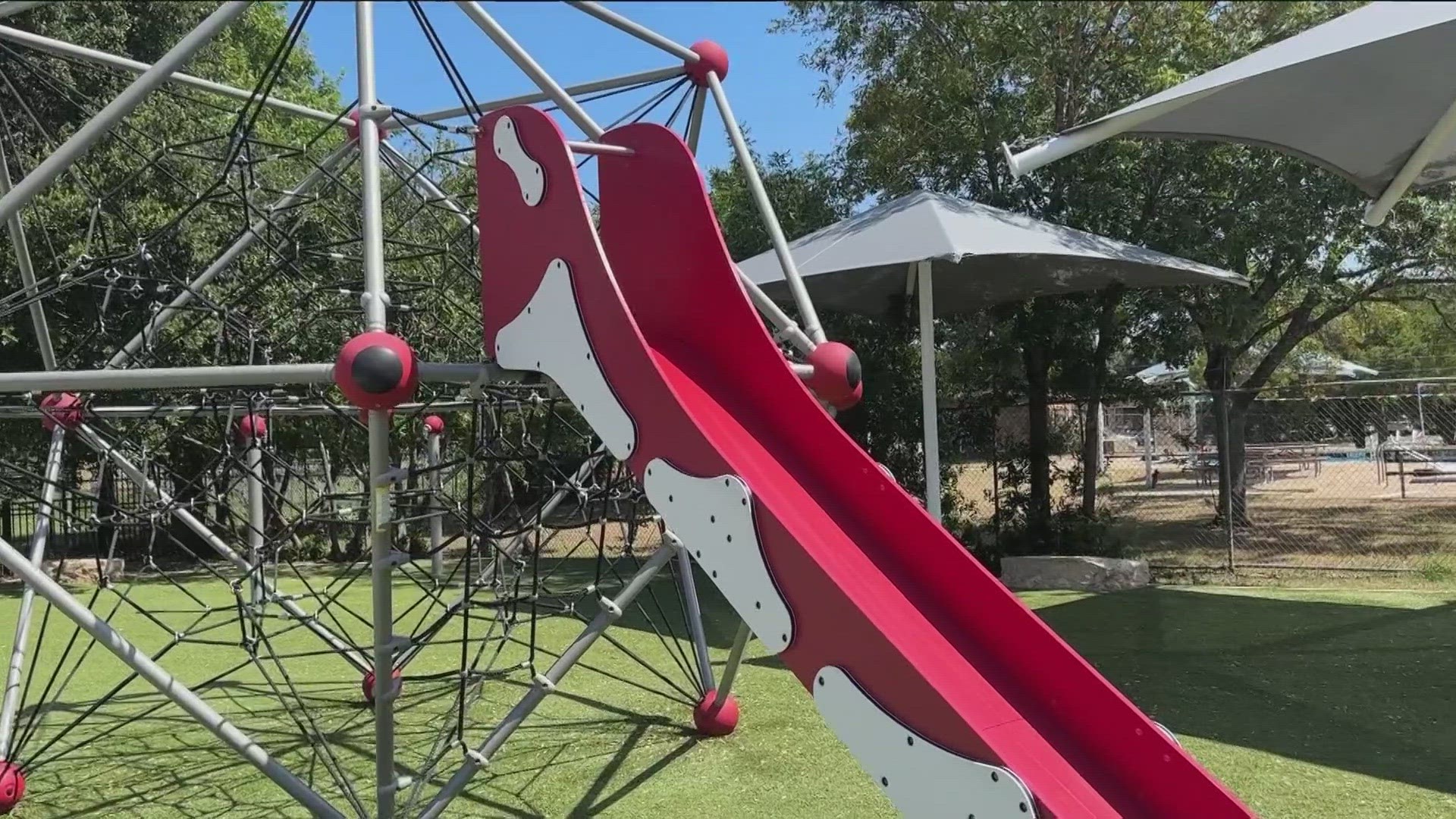AUSTIN, Texas — During the summer, families want to get out and play. But before hopping on the swing or monkey bars, experts say parents should make sure the playground equipment isn't too hot to handle.
Playgrounds can quickly become dangerous in triple-digit weather.
Battalion Chief Matt Cox with the Austin Fire Department used an infrared camera at Loewy Family Playground and clocked the slide at 130 degrees at around 11 a.m. – quickly demonstrating just how hot playground equipment can get and the damage it can have on kids playing.
"A good parent should test the equipment. If it feels too hot after five seconds, they can't keep their hand on it. That's too hot," Cox said.
According to the American Burn Association (ABA), if playground equipment reaches 140 degrees, it can take as little as three seconds to get a second-degree burn and five seconds to get a third-degree burn.
Experts also advise parents to plan outdoor playtimes during cooler hours, such as early mornings, and bring a beach towel so kids can use that to sit on before sliding down.
"I would be concerned. And what you could have is a burn that we all used to call second-degree and it's now called partial thickness, where you actually get blisters," Cox said. "I mean, we all are used to getting sunburned and you just have that soreness. But something like this [where you touch] something that's too hot, you could actually get blisters and then that can be infected."
The ABA says it doesn't have to be scorching hot outside for children to be severely burned by playground equipment. A plastic slide can reach a temperature of 150 degrees on an 80-degree day.
Parents should look out for minor friction burns, which may look red, swollen and wet.
The Burn and Reconstructive Centers of America says young children have slower reaction times to hot surfaces and thinner skin than older kids, so making sure playground equipment is at a safe temperature can help prevent burns.
It's also recommended to have children wear long pants to protect the skin on the back of their legs, protective shoes and a hats to prevent sunburns.

